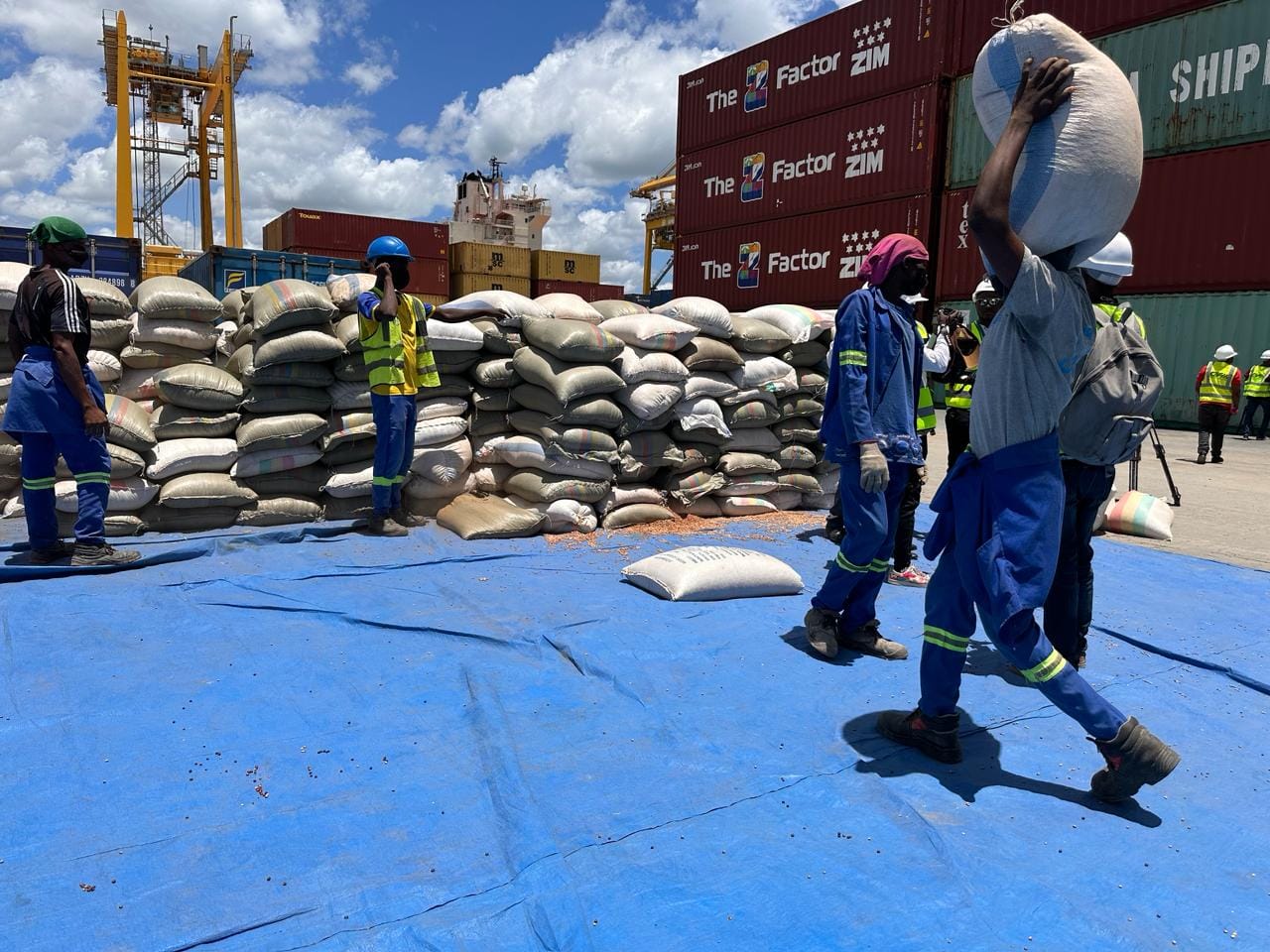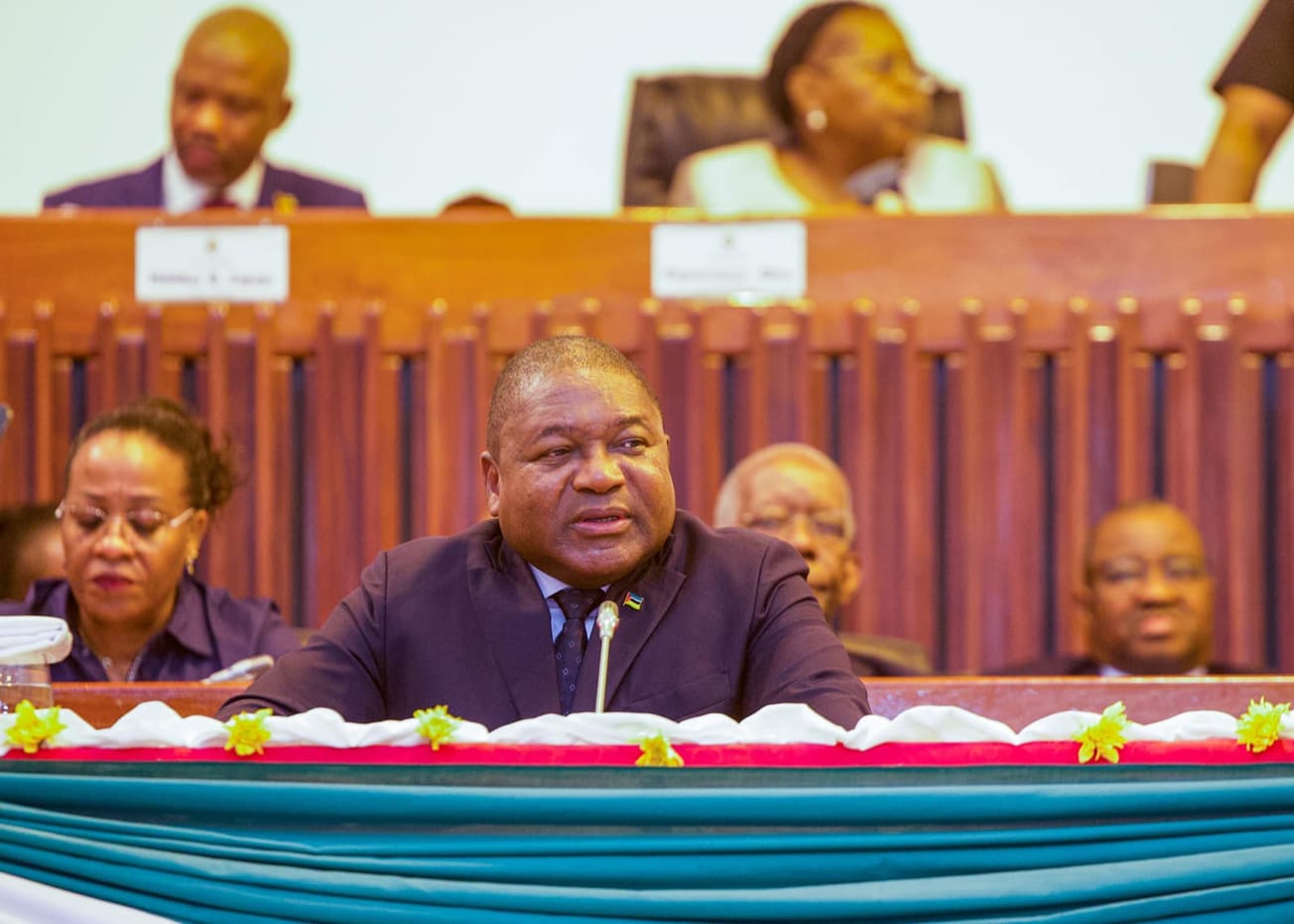Since last year, companies exporting pigeon peas from Mozambique to India have been arguing with the government and the Cereals Institute of Mozambique (ICM) over whether they are allowed to freely export the crop to India. Exports of pigeon peas to India are governed by a memorandum of understanding between the two countries, which specified a target of 200,000 tonnes a year in 2023-24. Although quotas have been used in previous years, the Indian government had already announced that, in this export season, it would accept unlimited imports of pigeon peas from Mozambique without tariffs. Despite this, the ICM still imposed quotas.
Then in July 2023, the ICM drastically cut the quotas allocated, seemingly without reason, meaning exporters faced being unable to export the grains they had paid for. A number of other exporters were added to the list of quota holders. Since then, there have been mixed messages from the government about whether there are restrictions on pigeon pea exports to India, and legal battles over the right to export, culminating in the seizure of about $60m-worth of pigeon peas from commodity trader ETG.
What are pigeon peas and why do they matter?
Pigeon peas, known in Hindi as “tur dal”, are a form of legume grown in Mozambique. Though not widely eaten by Mozambicans, they are a staple food in India, which does not produce enough to meet demand and so depends on imports. Before the events of the last eight months, the Mozambican government forecast that 320,000 tonnes of product would be shipped to India in 2023-24. Last summer, the pigeon pea market was estimated to be worth about $90m to Mozambican producers, making them an important cash crop.
What regulations did the government change?
In July, export quotas were massively reduced – by 85-95% for some companies – and 45 exporters were invited to bid for a portion of the 200,000 tonne target, though only 33 companies actually placed bids. In September, and after intervention from the government, customs authorities announced that pigeon pea exports were liberalised, but were promptly blocked by an injunction from an administrative court preventing this move. A loop quickly formed between the court and customs in Nacala, both of whom repeatedly claimed they were waiting for clarification on the situation from the other party. Meanwhile, 150,000 tonnes of pigeon pea stockpiles sat in warehouses, and Indian documents show that 46,000 tonnes were imported from Mozambique in October, despite an official freezing of exports.
Why did the government change their export quotas?
Initially, ICM director Alfredo Nampuio claimed the reductions were driven by a desire to include all 45 firms in exports. However, Zitamar News has been told of collusion between Mozambican conglomerate Royal Group, owned and run by Hassnein Mamadataki, and elements in ruling party Frelimo, to monopolise the pigeon pea trade for the benefit of both sides. Exporters suspect that the 45 firms include secret subsidiaries of Royal Group, which has thus been given a virtual monopoly.
The injunction granted in September was requested by Mazua Comercial, a company linked to entrepreneur Faizal António, a Frelimo member of parliament and a member of its Central Committee. Sources say that António approached exporters and encouraged them to export their surplus pigeon peas via Royal Group subsidiaries, by paying a commission, something António denies. Small traders, mainly of Bangladeshi origin, were approached by Royal Group in early 2023 to sell their pigeon peas through them.
What happened next?
There was a struggle in the courts over whether ETG and other exporters could freely export pigeon peas or not, as Royal Group or shadowy subsidiary firms attempted to argue that they were somehow being harmed by free exports, as they had been given quotas. In November, the administrative court in Maputo city ruled in favour of free exports, but it had no effect: customs authorities continued blocking them. Then in December 2023, and only one day after finance minister Max Tonela had instructed the customs authorities to allow free exports, Royal Group obtained a court order in another court, in Nacala, to seize $60m-worth of ETG’s grain produce, totalling 67,000 tonnes (mostly pigeon peas), and arrest one of its employees.
What are Royal Group’s motives?
As well as wanting to enjoy a monopoly, Royal Group’s behaviour also seems linked to its recent conflicts with ETG. In 2022 Royal sued ETG for $60m over an incident where a cargo of soybeans Royal was exporting to India was held up by customs authorities there, on suspicion that the beans were genetically modified, and therefore banned in India. Royal sued ETG in Mozambique, claiming that it had tipped off the Indian authorities, but the case was dismissed as bad faith litigation. ETG has said publicly that the seizure by Royal Group of its grains in December was an attempt to pursue its 2022 claim, despite the fact that that case, which Royal Group is appealing over, is being handled in a different court, in the city of Nampula.
How did other countries react?
The Indian high commission in Mozambique has repeatedly emphasised that India is not imposing any limits on imports from Mozambique this year. As exports continued to remain locked in warehouses in Mozambique, high commissioner Ankan Banerjee was replaced by Robert Shetkintong, previously the country’s high commissioner to Ethiopia, in an attempt to resolve the situation by the Indian government. The heads of state from Kenya and Tanzania also appealed to Nyusi to intervene in the matter.
What is the current situation?
Currently, Royal Group is succeeding in enforcing its monopoly on exports, although that could change when a court case is resolved.
At the direction of President Filipe Nyusi, government ministers have been seeking to force the free export of pigeon peas, but they have been resisted by corrupt elements in the tax authority, customs service and judiciary. In January, public prosecutors told the court in Nacala that had allowed Royal Group to seize ETG’s stocks to drop the case, but the court is currently refusing. The prosecutor in Nacala who issued the order in favour of Royal has now been removed from the case, and the judge is facing a disciplinary inquiry by the Supreme Court. The stocks seized by Royal Group have been kept by them in warehouses, but it is unclear how much remains there now. Royal reportedly tried to export some of the grain, but it has been blocked by another court order. It is also understood to have tried to sell some locally. In the meantime, Royal has continued to export pigeon peas, and to allow other exporters to export through its subsidiaries, in exchange for a fee and in defiance of the supposed customs ban.
What impact is the case having?
Farmers producing pigeon peas are likely to lose money due to not getting paid, as the pigeon peas they sold are being prevented from being exported. The dispute could also cause a lack of credit to finance the next growing season. As ETG has pointed out to President Nyusi, the fact that a multinational company is being prevented from exporting goods from Mozambique, for no clear lawful reason, risks damaging the country’s reputation as a place to do business.
Mozambique supplies the majority of India’s pigeon pea imports, and the choking off of the supply seems to have contributed to a sharp rise in the price of pigeon peas in India. In November, the Reuters news agency reported that the price of pigeon peas in Mumbai had risen by $100 a tonne as a result of the problems. However, for the time being, the Indian government has not shown signs of wanting to cancel its memorandum of understanding with Mozambique: at the end of last year, it extended the unlimited import regime from 2023-24 to 2024-25.








